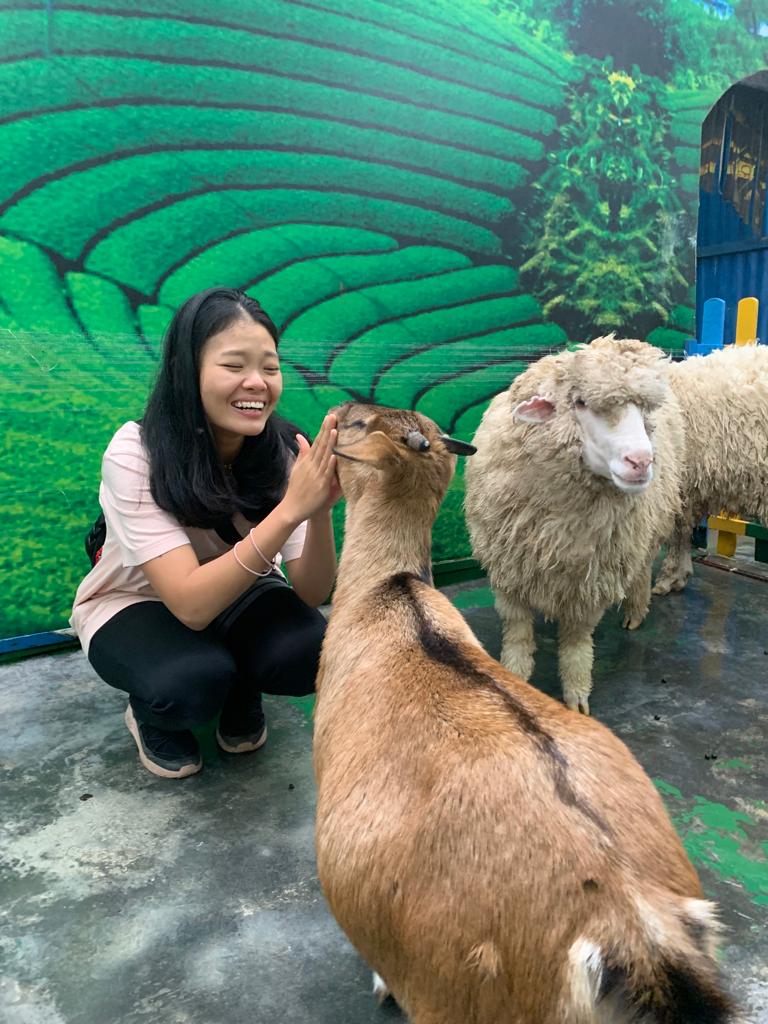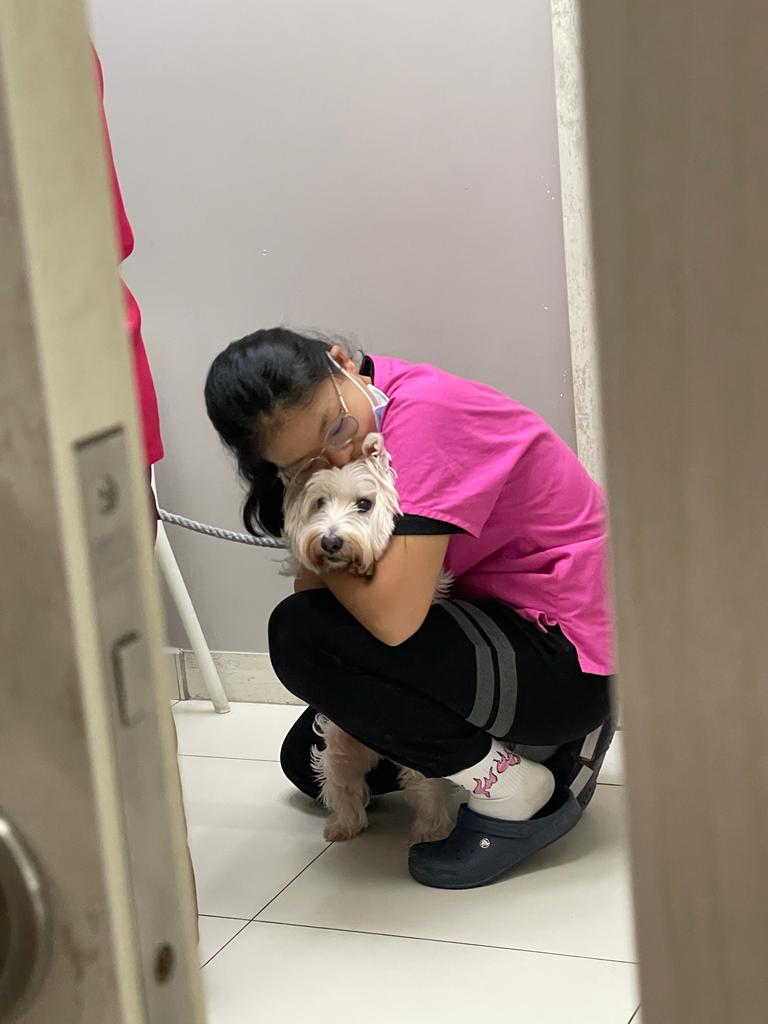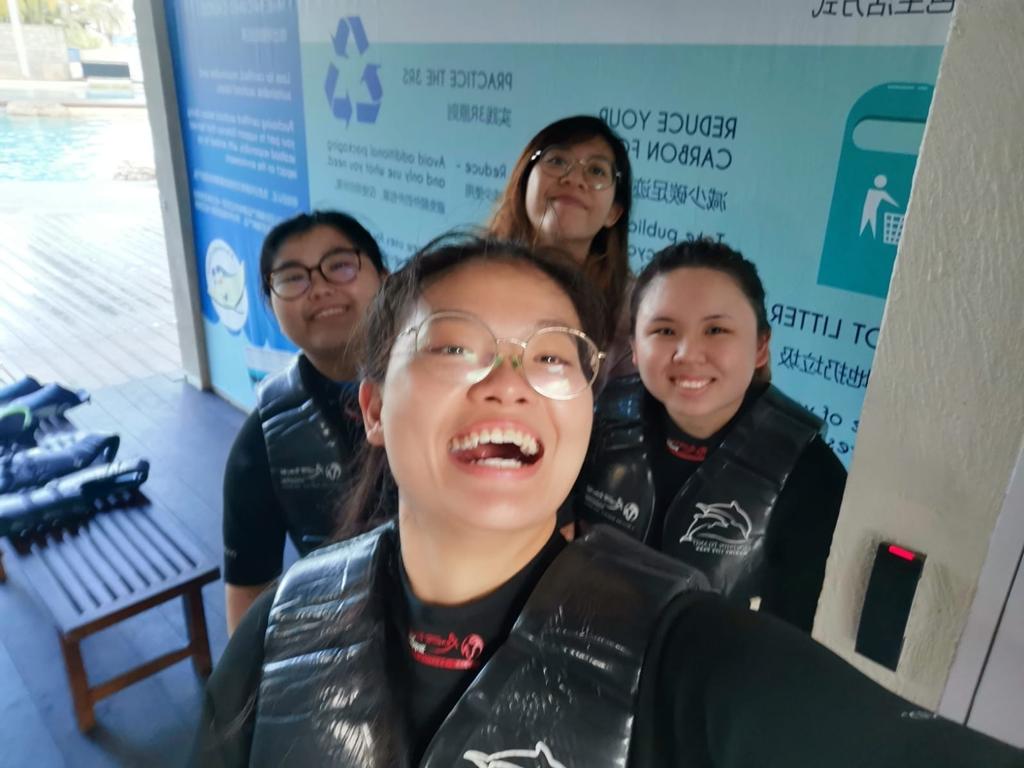A couple of months back, I almost gave up on my lifelong dream to become a veterinarian. After some intense reflections, I managed to find better motivations and intentions to realign with my values. So here are some motivations which I’ve come out with and some action steps/tips you can take to grow that motivation.
You have to genuinely love helping people
I really mean it when I say this. Prior to the intense reflection, this motivation was a mere ‘I have to love talking to people’ or ‘I have to like helping people’. After the reflection, I felt this motivation at a deeper aspect — more genuine, more love.
Being angry, annoyed, upset, disappointed at pet owners, clients or anyone that walk into the clinic (or cross your path, I shall say) is POINTLESS. Negative emotions will likely follow up with a reaction (biased, selfish, illogical) rather than a response (objective, loving, kind). You’re harming yourself, helping none.
There’s no such thing as unreasonable people. They just have yet to understand an idea or concept. Patience is key. But don’t think in terms of patience, think in terms of love and compassion, then naturally patience will come. Maybe even after trying your best to explain, they are still “unreasonable” then do what’s best in your capacity to mitigate the situation, with good intentions of course.
We will never know the person’s full story — why he is acting or thinking the way he did. We will never know what he has been through to get here. He may need help but just cannot or don’t know how to express it properly.
As a small animal vet (can only speak for this as I was a small animal vet nurse), you’ll be having consultations with pet owners MOST OF YOUR TIME. You shouldn’t often be feeling that your energy is drained from speaking to them. Instead, have the mentally that the more you give, the more space you have in your capacity to help and contribute meaningfully.
Tips:
- Volunteer or work to help people who are in need, to grow your empathy and patience.
- Think in the “me” perspective. It could ME that is perceiving that person in a certain biased perspective. It is ME that is judging, making assumptions and having unhelpful beliefs.
- Think that the more you give (advice, educating, listening ear, understanding, empathy), the more space (willingness, energy, capacity) you’ll have to contribute more.
- Don’t expect anything in return, give generously.



You have to be really patient with your animal patients
Notice how I did not say love your animal patients. Because obviously we all do — or so we thought.
You may paint an image of how a dog, cat, rabbit, guinea pig may behave, and associate that with cuteness, innocence etc. Maybe that’s how all your interactions with animals have been like — all rosy and happy. But in reality, that’s not how they behave — especially in an unfamiliar setting — in a vet clinic. We love them for their cute and innocent behaviour (so do we truly love them?). However, what happens if that’s not always the case?
They could be in fight-or-flight mode. I mean, they are animals after all. This is when you’ll have to be patient, calm and objective. Getting bitten, scratched, punched, slapped — you name it — by your patients, is quite common. Almost part of the job. But that doesn’t mean you should not care and get attacked purposelessly. Or become impatient and forget to LOVE your patients.
Being annoyed, angry, agitated, stressed because of your patients not being cooperative is just unnecessary and POINTLESS. Again, act with your best intentions — for the well-being for your patients.
Tips:
- Volunteer or work with animals (in both clinic and non-clinic settings)
- Treat each of them as individuals. Be flexible in your approach and always stay calm.
- Take precautions whenever necessary. Wear cat gloves or personal protective equipment.
- Completing a task does not always have to be fast, instead, the well-being of the animals should be one of the top priorities. Be patient.
- eg, you need to handle a cat that’s very stressed, take a moment to let it calm down before doing anything!


You have to genuinely love to work in a team.
Take a moment to imagine you’re already a vet (how nice right?).
Any time outside your consultation time, who will you be with? They are your team members. You’ll be with vet nurses, technicians, receptionists, clinic manager, fellow vets. They are the people hustling with you and for you. They are the ones who will be there for you during the highs and lows.
That’s what a team is. As a vet, you’re rarely working alone. Unless you’re a research vet I guess. Teamwork is not something to be taken for granted. It’s to be nurtured and strengthened. Recognise that this is part of the job.
What else is part of the job? Resolving and managing interpersonal conflict at work. There’s bound to be mistakes, miscommunications, misunderstandings amongst your teammates. Know that whatever that’s done is done, we can’t turn back time. So the only logical thing to do moving forwards is to find creative, construction and corrective solutions. And respond objectively. No drama llama.
Tips:
- Be genuinely interested in others. Be curious because there’s always something to learn from others.
- Understand and respect the roles and responsibilities of your team members.
- Getting the right people involved at the right time is important.
- Don’t criticise, condemn or complain.
- Give sincere, honest appreciation.
Your thoughts, actions and motivations cannot come from a place of ego
So we want to be a vet. Some reasons are… To be called ‘Dr’? Live our childhood dream? Because it has been praised by others? Fulfil our parents’ wish?
Some of the above reasons are valid to a small extent, but some are not at all (especially the first one). The above examples are just some of the many surface level reasons that people might have for their desire to become a vet. But our reasons to become a vet has to be deeper than that — less ego, more love, more compassion.
To have ‘Dr.’ in front of our name… It’s not a reason, it’s a want — an egoistic one. Having a pinch bit of this want is pure sabotage. Not only is it self sabotage, it will harm everyone else involved in the long run.
[Not only me, an aspiring vet friend (who was also working as a vet nurse alongside me at that time) admitted that we are guilty of reason 1. After being aware that the root of this want is egoistic (after practicing Vipassana meditation), I re-evaluated my values and intentions and found way better reasons to become a vet.]
Let’s start with how it’ll sabotage ourselves.
With ego comes attachment, and with attachment comes lots of negative emotions — anger, disappointment, envy. Attachment to our title of ‘Dr’ is one sure way towards downfall. What happens if someone ‘disrespects’ your title of ‘Dr.’? Having some ego in us will cause us to act out — become defensive, agitated, impatient, blaming etc. Will you continue to respect or trust a vet like this?
And at the end of your journey, be it your career journey or life journey, you won’t be able to give an answer to this question (or rather you don’t want to give an answer if there’s still ego present): What pleasant experience and impact have I made throughout my career as a vet?
Next, it’s about how ego will sabotage other parties involved.
Tell me if ego will help your animal patients that are suffering. Whether it will help pet owners who are emotional or require specific advice? Or whether it will help your team create a work culture and environment that is energising, productive and impactful? The answers to these questions are pretty self-explanatory.
Ego is for temporary gains, it’s never going to be helpful or sustainable for anyone involved. With ego, it’s only sooner or later that you’ll realise to avoid as much as possible. I’m glad to have encountered Vipassana meditation and realised this before I started my journey as an official vet student.
Tips:
- Be detached from your desire to be a vet for moment and re-evaluate your values and intentions (read more on this blog ⇒ ‘How to be detached from your identity — 5 steps’)
- Gain work experience in the veterinary medicine industry, get a good idea of what it is like working as a vet.
- do you get impatient, annoyed, frustrated at the little things or common situations (like speaking to pet owners who needs more help)?
- are there some things you absolutely hate doing or seeing?
- are the positives outweighed by the negatives?
Conclusion
Get out, do more, experience more! Work closely with both people and animals. The more references you have under your belt, you will be able to find better reasons, values and intentions to become a veterinarian. It’s not something which you can figure out in a few days (props to you if you could!) but rather months to years of trying to dig deeper.
Although I’ve always wanted to become a vet since forever (7 or 8 years of age?), but it was with surface level reasons (I mean I can’t expect a child to have such deep level thinking haha). Nonetheless, throughout my three and a half years working as a vet nurse, I’ve always been finding better reasons to become a vet. It’s a career that has slowly grown more and more into me.
